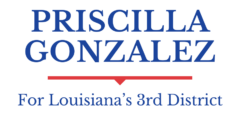The Wastewater Infrastructure Pollution Prevention and Environmental Safety (WIPPES) Act (H.R. 2964) seeks to address the environmental and infrastructure concerns created by non-flushable wipes. The bill directs the Federal Trade Commission (FTC) to draft regulations for clearly and consistently labeling premoistened, nonwoven wipes (such as baby wipes and cleaning wipes) to indicate whether they are non-flushable. This bill aims to prevent inappropriate disposal of wipes in toilets, which can cause blockages and damage to wastewater systems, costing millions of dollars in repairs (Congress.gov, Congresswoman Lisa McClain).
Key points of the WIPPES Act include:
- Uniform Labeling: The FTC is tasked with creating standardized labels for products that should not be flushed, helping to reduce consumer confusion and prevent improper disposal.
- Preventing Blockages: By clearly labeling non-flushable products, the Act aims to mitigate the millions of pounds of wipes that currently enter sewer systems each year, causing costly blockages and maintenance issues.
- Environmental Protection: Proper disposal of non-flushable wipes can reduce the breakdown of these products into harmful microplastics, thus protecting water quality and marine habitats.
The bill has received bipartisan support and has passed the House of Representatives, reflecting its broad approval and the recognized need for such measures to safeguard both the environment and public infrastructure (Congress.gov) (Congresswoman Lisa McClain).
Clay Higgins voted against HR 2964, the Wastewater Infrastructure Pollution Prevention and Environmental Safety (WIPPES) Act, which aims to improve wastewater infrastructure and reduce pollution while also improving environmental safety. The bill gained bipartisan support, passing the House 351-56 (Vote Smart) (ProPublica).
Higgins’ vote against the WIPPES Act might have serious ramifications for his constituents. The Act focuses on pollution reduction from wastewater systems, which is critical for protecting public health and maintaining environmental quality. Voting against such initiatives can stymie efforts to address essential infrastructure requirements and environmental concerns, potentially resulting in increased pollution and health risks for communities.
For more details on Congressman Higgins’ voting record and stance on various issues, you can visit his official page on ProPublica and Vote Smart.
